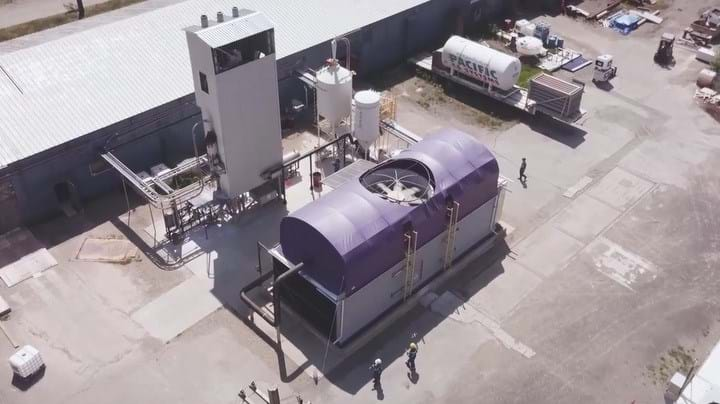Cutting the cost of carbon capture

CANADIAN company Carbon Engineering has announced that it can capture carbon from the air for less than US$100/t, significantly lowering the previous cost estimate of US$600/t.
Carbon Engineering has been running a direct air capture (DAC) pilot plant in Squamish, British Columbia, since 2015 that captures 1 t/d of CO2. The air blows through towers that contain a solution of potassium hydroxide, which reacts with the CO2 to form potassium carbonate, which can then be processed into a calcium carbonate pellet. The CO2 can be released upon heating the pellet, pressurised, and either stored or made into fuel.
Since December 2017, Carbon Engineering has been converting the CO2 into a synthetic liquid fuel by combining it with hydrogen. The hydrogen is produced via electrolysis, and the power for this comes from renewable sources. The fuel is compatible with existing engines, and although CO2 emissions are released when the fuel is combusted, it only emits the same amount that went into making it. The pilot plant is currently producing 1 bbl/d of fuel and Carbon Engineering believes that its fuel is a better alternative to biofuels as the process uses less land and water.
The pilot plant has provided a test bed to estimate the cost of carbon capture technology, and by adapting existing technology, Carbon Engineering has cut the cost to US$100/t, down from the US$600/t calculated by the American Physical Society in 2011. Carbon Engineering has published the details in a paper.
"Until now, research suggested it would cost US$600/t to remove CO2 from the atmosphere using DAC technology, making it too expensive to be a feasible solution to removing legacy carbon at scale," said David Keith, a professor at Harvard University and founder of Carbon Engineering. "At Carbon Engineering, we’ve been working on direct air capture since 2009, running our pilot plant since 2015, and we now have the data and engineering to prove that DAC can achieve costs below US$100/t. No prior research in the peer-reviewed literature provides a design and engineering cost for a complete DAC system – and this paper fills that gap.”
The technology is scalable, and Carbon Engineering is currently building a larger plant that should be operational by 2021 and will produce 200 bbl/d of synthetic fuel. A commercial facility capable of producing 2,000 bbl/d is also being planned, and scaled-up facilities have the potential to capture 1m t/y of CO2, which is the equivalent to the emissions of 250,000 cars.
Joule http://doi.org/cqqj
Recent Editions
Catch up on the latest news, views and jobs from The Chemical Engineer. Below are the four latest issues. View a wider selection of the archive from within the Magazine section of this site.




